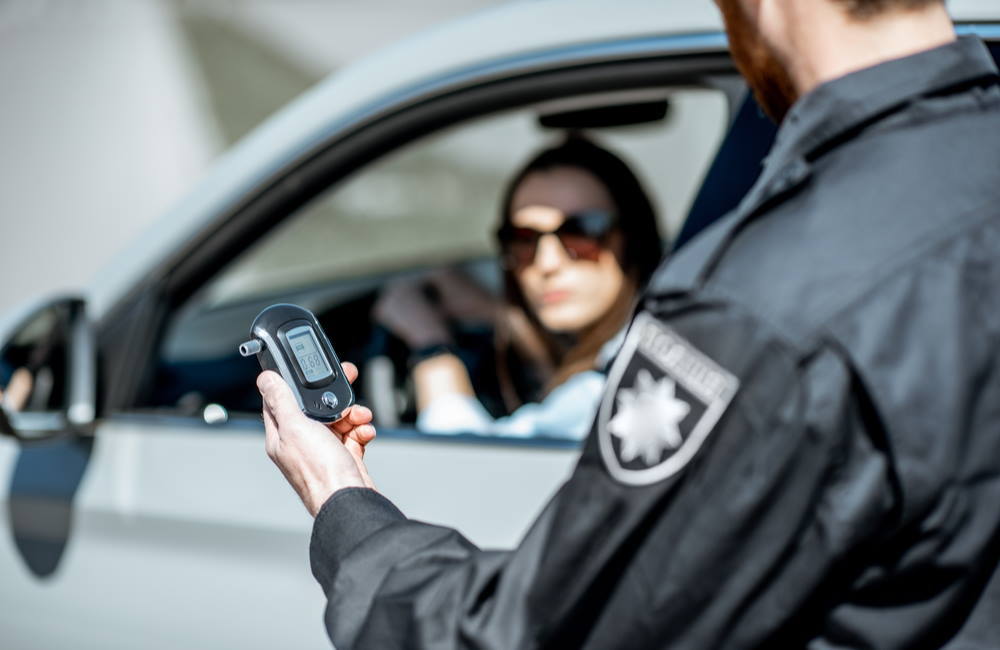Marijuana Breathalyzers Still Don’t Accurately Measure Impairment
It’s reasonable that law enforcement agencies around the world want a way to test whether someone is too impaired by cannabis to drive. The problem is they cannot produce a reliable version of a marijuana breathalyzer.
A recent study from Australia found that testing the levels of THC in blood and saliva is not a smart or accurate way to determine impairment. THC is the chemical ingredient in marijuana that causes the high.
“Higher blood THC concentrations were only weakly associated with increased impairment in occasional cannabis users while no significant relationship was detected in regular cannabis users,” lead researcher Dr Danielle McCartney with the University of Sydney said in a news release. ““This suggests that blood and oral fluid THC concentrations are relatively poor indicators of cannabis-THC-induced impairment.”
Lack of Tests a Problem For Police
Breathalyzers work fine with alcohol because they measure the level of alcohol in the bloodstream, which is a reliable way to test levels of intoxication. The biggest issue with cannabis is that it doesn’t work like alcohol.
Long after people use marijuana or feel its affects, tests can still find traces of THC in the bloodstream. While the body immediately starts breaking down alcohol, it does not do the same with THC. Tests can find fat-soluble cannabis metabolites in a person’s blood and urine even weeks after they stopped feeling the effects.
In the news release, McCartney said: “Our results indicate that unimpaired individuals could mistakenly be identified as cannabis-intoxicated when THC limits are imposed by the law. Likewise, drivers who are impaired immediately following cannabis use may not register as such.”
This presents a problem both for attempting to design a marijuana breathalyzer for drivers and for testing employees at work. Some states, such as New York, have done away with testing for cannabis use among employees largely for this very reason.
Some states also have stopped trying to prosecute possession cases where officers detain people because they smell cannabis. Much like THC in the bloodstream, the smell of cannabis can stay in the air for a long period of time.
The Future Looks Uncertain on Marijuana Breathalyzers
Companies continue to work on a marijuana breathalyzer that works correctly. Anyone who does will reap the benefits of a global law enforcement community looking for ways to properly test drivers, and employers looking for ways to accurately determine if an employee is not fit for their jobs (such as operating heavy machinery).
However, some have started to wonder if it is even possible. Dr. Peter Grinspoon, a Massachusetts General Hospital physician and board member of Doctors for Cannabis Regulation, told Discover Magazine that while quantifying impairment is important for law enforcement, it’s difficult to do so.
He said he understands the desire to have marijuana breathalyzers that “simply allow law enforcement to say, ‘you’re impaired, you’re not impaired.’ However, it just doesn’t work that way.”
Field tests likely don’t provide an answer, either, according to some. Chris Halsor, a Colorado attorney, told Discover that even though the National Highway Traffic Safety Administration claims cannabis impacts driving-related skills, that’s not always apparent when people take a field sobriety test.
“You could absolutely have people under the influence of marijuana who had poor physical coordination,” he said. “And you could also have people who were completely baked out of their minds and could ace them.”
The hope among marijuana advocates is that researchers will eventually develop a reliable test that will eliminate the fear among cannabis users that they could get arrested or lose their job weeks after marijuana use. But the new study shows that when it comes to marijuana breathalyzers, that day has not yet arrived




